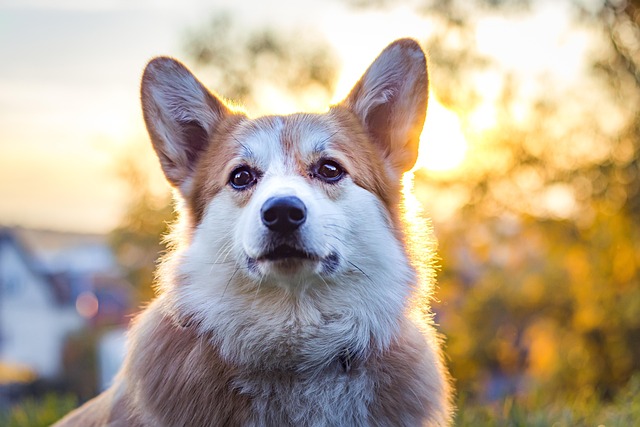
How do i train my dog to be obedient?
Watching your dog dart across the park ignoring your calls isn’t just frustrating—it can put them at risk near busy streets or public spaces.
When you welcome a soft and cute puppy, it runs around the house happily, full of vitality. As it grows up, taking it for walks and exploring the world becomes something you look forward to. And rope training is an important lesson in the growth process of puppies. At what age do you start training your puppy with a leash? This not only affects the puppy's safety, but also influences its future behavior habits and interaction patterns with you.
Generally speaking, when puppies are 3-4 months old, it is the golden time to start rope training. At this stage, the puppy's body and bones have developed to a certain extent and are able to adapt to wearing a leash and walking for a short period of time. At the same time, their cognitive abilities are also rapidly developing, and they are in a stage of curiosity about the world and willingness to learn new things. At this time, conducting leash training makes it easier for puppies to accept and adapt.
At the 3-4 month stage, training should be gradual, starting with familiarizing the puppy with the presence of a leash. Choose a soft, comfortable, and appropriately sized leash, gently wrap it around the puppy, and let it move freely at home, feeling the weight and feel of the leash. Don't rush to pull the leash, let the puppy gradually adapt in a relaxed and comfortable atmosphere. This process may take several days until the puppy no longer shows resistance or unease towards the leash.
After the puppy adapts to the presence of the leash, it can begin preliminary walking training. Take the puppy to a quiet, open, and undisturbed place, such as your own yard or a quiet community road. Stand on the left side of the puppy, hold the leash with your left hand, and maintain an appropriate length and slack. Then, take your left foot and give the command to "walk" in a gentle yet firm tone. If the puppy can follow your footsteps, give timely praise and rewards, such as gently stroking its head, saying 'baby is great', and giving it a small piece of its favorite snack. If the puppy is unwilling to move forward, do not forcefully pull it, but stop and patiently wait for it to move forward on its own, or guide it with snacks.

As puppies age, their physical strength and endurance increase by 5-6 months, and the difficulty and duration of training can be appropriately increased. Take it to a slightly more complex environment, such as a park, where there may be other people and pets, and there may be more sound and odor stimulation. In this environment, puppies may be attracted to external things and want to break free from the leash. When this situation occurs, stop immediately, gently pull the leash to bring the puppy back to you, and then give the command to "go" again. If it can obey instructions and stay with others in a disruptive environment, more generous rewards should be given to strengthen its correct behavior.
During the entire training process, special attention should be paid to the emotional and physical condition of the puppy. Puppies have shorter attention span and are prone to feeling tired and bored. If you notice that a puppy is becoming impatient, frequently pulling the leash, or moving slowly, you should pause training and let it rest for a while. You can accompany it to play with its favorite toys for a while, relax its mood, and continue training after it recovers its energy. At the same time, it is important to pay attention to the use of the traction rope and not to pull or tug forcefully, in order to avoid harming the neck and body of the puppy.
Starting leash training for puppies at the appropriate age is a journey full of love and patience. Every training session is about establishing emotional communication and trust between you and the puppy. When one day you take your grown dog out and it can closely follow you, obey your commands, and enjoy the happy time of walking, you will understand that all the efforts are worth it. Let us accompany the growth of puppies with love and patience, and let the leash become a warm bond connecting you and your dog, walking through every beautiful day together.

Watching your dog dart across the park ignoring your calls isn’t just frustrating—it can put them at risk near busy streets or public spaces.

New puppy owners often find themselves rushing to clean up accidents before they set in, and that’s where puppy pad training becomes a game-changer.

If you've noticed your dog's waistline disappearing and your veterinarian has mentioned those few extra pounds, your first instinct might be to simply reduce the amount of food in their bowl.

Training a dog to use a designated spot indoors isn’t as daunting as many new owners fear, but it does take consistency and an understanding of your pet’s needs.

That moment of dread on a walk is all too familiar for many new dog owners. You see another dog approaching down the sidewalk of your neighborhood

If the sight of another dog on your neighborhood walk makes your heart sink as your own dog erupts into a frenzy of barking and lunging, you're not alone.